Bringing to you a collective 85+ years of Equine Experience in All Levels.
Gwenyth Browning Jones Santagate, NHC, PPT, EqHOM, 45+ years
Sue Wheeler, PENZANCE Assoc., Equine Creative Consultant, Lic. MA Instructor, 40+ years
Equine Whole Horse Services Offered:
- Whole Horse Wellness Evaluations & Preventative Care
- Behavioral/Performance Evaluations & Modifications including PTSD and Phobia Therapy
- Homeopathy
- Bodywork :: Acupressure, Photonic Therapy (Low Level Laser Treatments), TTOUCH (Cellular Massage), Quantum Touch, Masterson, Synergistic Energy Therapy
- Natural Hoofcare: Pathology Care (Laminitis, Founder, WLD, Thrush, Navicular etc. – Consultant & Practitioner
- Behavioral Training/Teaching Plans
- Diet & Nutrition Therapy
WELLNESS & PREVENTATIVE CARE EVALUATIONS
A yearly wellness & preventative care evaluation is an important aspect of your horse’s routine care. “An ounce of prevention is worth a pound of cure” … ensuring that the body and life force of your horse is well balanced can help ward off common afflictions such as seasonal allergies, sweet itch, abscesses of the hooves, and more. “Way of going” issues for horses many times are caused from such stressors as imbalanced hooves, spasmed muscles or some other unidentified pain issue. Some behavioral and physical issues are caused by a condition known as ‘vaccinosis’ which, if recognized, can be dealt with safely and effectively through homeopathic administration and diet changes. Assuring well-fitting saddles, correct riding seat and appropriate tack being used also affect the over-all wellness of your horse. All these things come into play when evaluating the WHOLE HORSE for his or her overall wellness. PENZANCE helps you with issues like these by looking at the WHOLE HORSE and not just at the individual “symptoms”. We believe strongly that symptoms are merely the body’s way of manifesting imbalances/dis-eases within itself. Treating just the symptoms and not the whole horse suppresses the symptoms and drives them back into the body where they will only fester and re-manifest in a different and, usually, a more pronounced/serious manner than originally.
PENZANCE also takes a close look at the husbandry practices and social situations of your horse. Of course stable/barn management has much to play in the total well being of your horse but did you know that how he is immersed in his ‘social’ activities also has alot to do with his overall wellness? Many times simply switching paddock mates will alleviate many issues. Other times complete overhauls of the husbandry and herd management practices is required. Keeping with the specificity of the individual horses owner and horse, these things are closely examined as to the role they play personally in your horse’s well-being.
While you, your horse’s human, know him or her the best, sometimes that closeness gets in the way of objective evaluations. We’ll help you with that, giving a totally objective view, and then work with you to determine a plan of action that will meet you and your horse’s needs specifically.
Simply put – We’ll recommend an appropriate wellness and preventative care schedule together for your horse based upon his or her age and lifestyle as well as your situation and budget.
BEHAVIORAL EVALUATIONS
Anything forced and misunderstood can never be beautiful.
If a dancer was forced to dance by whip and
spikes,he would be no more beautiful than a horse
trained under similar conditions. ~Xenophon, 400 B.C.
In as much as our own ‘lessons’ affect us and our teachers influence us one way or the other, the same applies to horses. While most will not want to know this or accept it, behavioral issues in horses are usually man-made OR discomfort/pain issues. Whether or not one intends to cause negative behaviors the fact remains, everything we do with or to a horse affects his or her behavior. For better or for worse.
Usually, its a matter of mis-communications. PENZANCE will help you identify issues and get back on track – help you to understand what your horse is saying and help your horse understand your communications with him. And, sometimes its a PTSD situation or, more deeply, a down and out PHOBIA condition. PTSD and PHOBIAS both need special therapy to work through the condition. We’ll help you identify the cause of the misbehaviors and then set things up for a win-win situation for both you and your horse. It’s a two way street and we’ll work with both you. After all — Horsemanship is a relationship. We’ll evaluate what needs to be worked on and then help you and your horse through it all to create a full Partnership where both horse and human have 100% reliable roles. One where your horse can trust you 100% and, in turn, you will 100% trust your horse.
DIET PLANS
As your horse ages his diet needs to change with his changing needs. His nutritional requirements will change as does his metabolics. Especially seniors and those diagnosed with Cushings, Insulin Resistance or EMS. Also, horses that are struggling with a particular dis-ease will need special attention to his overall nutritional needs. There is no cookie-cutter approach. Each horse is an individual.
Hippocrates stated, “Let food be thy medicine and medicine be thy food.”
We believe no truer words have been spoken. PENZANCE will help you determine the right choices for your horse’s nutritional needs based upon its age, activity levels, and overall whole-body health.
Call 508.476.1317 Mon-Fri, 9 am – 5 pm, or email to: caballus@charter.net anytime to set up an initial appointment for you and your horse**.
**A quick FREE basic consultation may give you enough information to get started. Some coaching can be done long distance or through private consultation sessions online/phone and video sessions are also available. Please inquire.__________________________________________________________________________________________
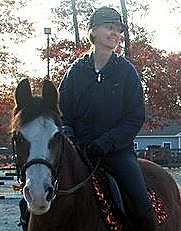 About Sue Wheeler, Equine Creative Consultant (ECC), Associate of PENZANCE Equine Integrative Solutions:
About Sue Wheeler, Equine Creative Consultant (ECC), Associate of PENZANCE Equine Integrative Solutions:
Sue has a unique ability to work with horses, riders, owners and other professionals to explore and come up with CREATIVE ways to accomplish the goal on which you’re working.
Over 40 years of experience in a plethora of disciplines both conventional and natural, Sue lends a fresh set of eyes for all situations.
Are you stuck on something? Allow Sue’s fresh set of eye to come to your aid when you simply just don’t know what your next step should be.
Call PENZANCE today. 508.476.1317 or email caballus@charter.net

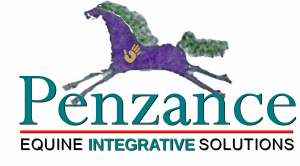
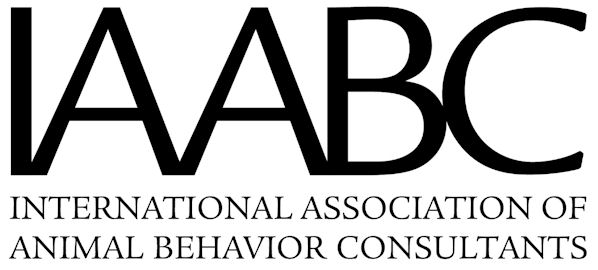


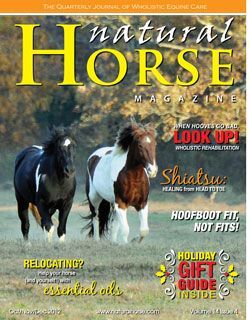
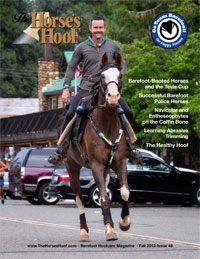
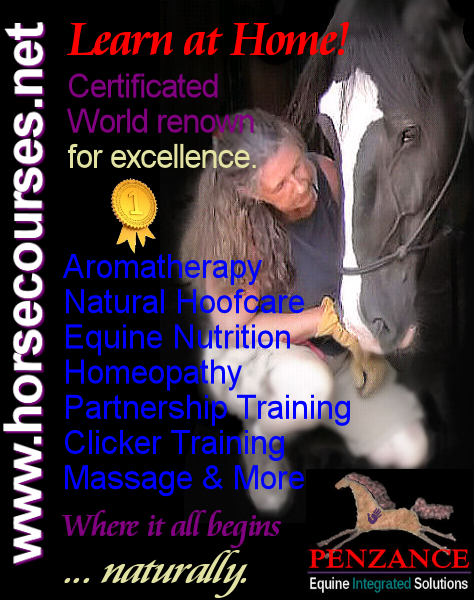




hi,
I have a 22 yr old Missouri Foxtrotter, she has Lyme disease and I am starting today to treat her with Ledum. I am quite sure she has cushings disease as well. Is there anything you can suggest to me to try with her. Some type of herbal thing. Thank you
Hi Tammy! Here’s copy of something I just wrote to someone this week. Think it’ll help:
————————————–
“The Equine Cushings “Cure” Recipe
If any of you out there would like to try chasteberry, here’s what to do. Go to your local health food store and special order one pound bulk bag whole chastetree berry from the Frontier herb company (please mention Eye of the Storm Equine Rescue when you do). You might want to order more than one bag so that when you’re down to one you can reorder. One bag will cost you less than $20 and will last a couple of months per horse.
Run the berries through your coffee grinder and feed one teaspoon twice a day with feed. We give the same amount to horses and ponies. It works on both mares and geldings. Give it to them three weeks on and one week off all year round. It will even keep the mares from being quite so crabby in the spring.
We also give them all vitamin E in the evening, vitamin C in the morning, and MSM. No sugars or carbohydrates (not even a carrot). There are feeds out there that are low in both, such as Blue Seal Racer and some of the senior feeds (do some research). All in all, chasteberry is the answer. Even our two 30-year old mares don’t have equine Cushings, only Bess, Junebug, and Snowdrop, who came to us with the disease and it appears to be reversed. I never had horses of my own get Cushings. I have every horse in town that has Cushings on chasteberry and they’re all doing great! This is a cheap, easy, healthy remedy for Equine Cushings disease.”
Obviously I don’t agree with the statement about carrots/fruits/veggies/etc. as while they may be ‘high’ on the Glycemic INDEX they are very low on the Glycemic LOAD which means, simply, that the natural sugars in them don’t have a pronounced effect on the blood sugar rapidly but, contrary, enter the blood slowly and therefore the body is quite capable of handling it, producing insulin in ‘normal’ rates. That’s true of mostly all fruits and veggies … and they’re all fiber/forage – just what horses are created to eat. Varied, varied. So — we’re on track with that. I firmly believe that many horses and ponies that are fed “the best” in equine feed and hay, supplements, etc. (processed) are all suffering from Nutritional Deficiency Disease since they don’t ever get anything ‘live’ in the way of food. As with humans, raw, fresh fruits and veggies are found to reverse IR, drastically reduce effects of Cushings, EMS, allergies, even cancers — the same applies to horses and even more so because of the ‘design’ of their guts.
I would give high doses of Vitamin E … up to 10,000 units a day. !! (This was discussed and approved at Tufts a few years ago — my homeo-vet went to the conference on this and reported back to me for Misty.) … But probably start on 5,000 units a day for Bear since she’s a little guy! *grin*
Vitamin C … 2000 mgs daily.
MSM … follow directions … this stuff is great for all sorts of ‘maladies’. Particularly inflammation.
SOURCES:
Chaste Tree Berry — http://www.mountainroseherbs.com (organic!) AND you can get Vitamin C there, too.
Vit E —http://www.unitedvetequine.com/horse-nutritional-supplements/Vitamin-E-5000-horse-nutrition.asp
All of this can just be mixed right into the salads. I’d also be sure to get the coconut (dried, unsweetened, organic chips from http://www.nuts.com) mixed in with the salad, too.
So that’s what I did for Misty. You saw the change in her in just 4 months, right? If not … go here: http://www.thepenzancehorse.com/2009/ARTICLES/misty09.html
AMAZING, amazing difference! But, it did take a couple of months. And we did start around this time of year with this ‘protocol’ for her. So, keep up the good work with Bear, Vicki!
http://eyeofthestormequine.blogspot.com/2009/10/article-equine-cushings-cure.html
One more thing. MAGNESIUM is important in any animal’s diet and again, I don’t believe they get enough. You can add 1 tsp (rounded) into their water buckets daily (5 gal bucket) … each. Or, sprinkle 1 tsp on their salads at least 3 times a week. If either of them show any diarrhea then cut back by 1/2. But 1 tsp. should be just fine.
EPSOM SALTS = Magnesium Oxide. Cheap, cheap.
Also, check out high magnesium veggies — I think Kale has the highest amt. of MgO …
————————————————————
🙂 Hope this helps. Keep us posted on the Ledum protocol and don’t forget, if ‘symptoms’ start coming back in a couple months? Just repeat the LEDUM 1m 3x a day for 3 days. 🙂
Hi there, I was hoping to get information on Ledum M1 with regard to Lyme disease. My 2 year old 45lb terrier mix has a antibody count of 215, and the vet wants to start doxycyclene. She has a pretty sensitive stomach to such things and I know from being around horses with lyme that doxycyclene might not even be an effective treatment. On top of that are the many possible side effects and, again, a month of possible diarrhea and unhappiness for her, and the aftermath of probios after all the antibios (cures for the cure).
Obviously, I think the doxy is a bad choice for my pooch and was hoping for some info on Ledum M1. Any response is greatly appreciated by all of us.
Hope your New Year has been so far beautiful!
Andrea
Hi Andrea … the link http://www.thepenzancehorse.com/2007/BITSNPIECES/lyme&ledum.htm takes you to a copy of Dr. Stephen Tobin’s protocol for using Ledum 1m for Lyme Disease. We use it here at PENZANCE and many of my clients have used it successfully. Good luck! 🙂